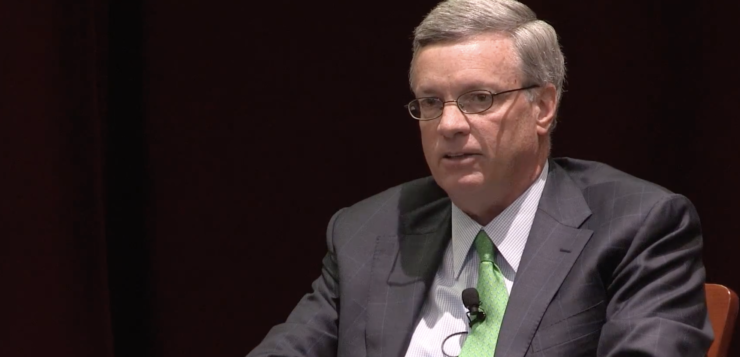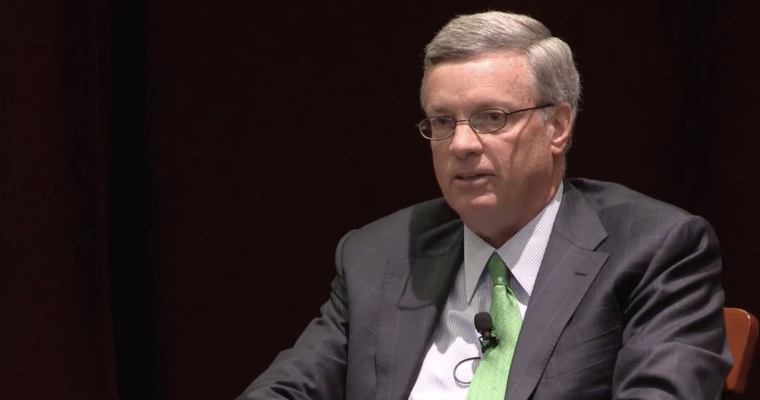According to Al Kelly, the CEO of Visa, the company could support crypto in the future if the global market moves in the direction of embracing consensus currencies like Bitcoin and Ethereum.
In the short to mid-term, Kelly told Jim Cramer, the host of Mad Money, that cryptocurrencies as an asset class is not a threat to reserve currencies that serve as the basis of Visa’s products. But, he stated that as the adoption of cryptocurrencies improve in the years to come, Visa will facilitate the demand for the asset class.
“I think there has to be some market that it becomes somewhat like a fiat currency in order for us to be comfortable. If it goes in that direction, we will move in that direction. We want to be in the middle, Jim, of every payment flow in the world regardless of how it happens or what the currency is behind it. So if we have to go there, we will go there. But right now, it’s more of a commodity than a payment vehicle.”
In the Middle
Visa is the most influential credit card service company in the finance sector and is amongst the most profitable businesses in the market alongside Mastercard.
In the long-term, Kelly emphasized that Visa will eventually serve as a middleman to attract crypto users to send and receive digital assets with Visa on its platforms, by providing fees to the company.
However, by the time Visa would feel comfortable in integrating cryptocurrencies, which as the CEO described it as when the asset class is established utilized by the mainstream, cryptocurrencies would not require middlemen to process payments.
With non-custodial wallets and open-source platforms, users of cryptocurrencies can efficiently and securely transfer digital assets without paying additional fees on top of the trasnaction fee provided to the miners of the ecosystem.
Currently, due to the lack of merchant adoption, it is difficult for crypto users to compensate merchants to purchase simple products like coffee and food. A financial institution at the size of Visa could single-handedly increase the adoption of crypto amongst merchants in a large capacity.
But, the intent of Visa to target the cryptocurrency sector is to provide middleman services several years from now when cryptocurrencies are already accepted by merchants and being utilized as an alternative currency to reserve currencies like the US dollar.
Fidelity’s Big Bet
The time to support and experiment with cryptocurrencies is now, when it is experiencing exponential growth and is still at an early phase.
Years down the line, the cryptocurrency sector could heavily rely on decentralized systems and services, which even platforms within the market including Binance expect, as seen in the development of the Binance decentralized exchange.
Already, Fidelity, Goldman Sachs, and Citigroup have started to serve investors in the cryptocurrency market by seeing sufficient demand for the new asset class, while Visa, Morgan Stanley, and several other financial institutions remain cautious in entering the cryptocurrency market.
Featured image from Youtube/Boston College Carroll School of Management.
Follow us on Telegram or subscribe to our newsletter here.








